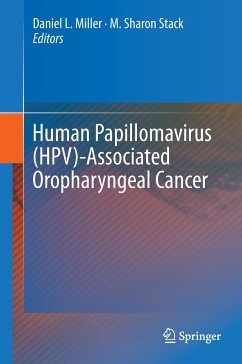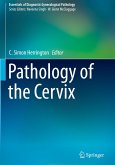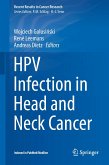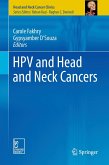Head and neck squamous cell carcinoma (HNSCC), the sixth most prevalent cancer worldwide, remains a very difficult disease to treat and cure despite intensive investigation into molecular etiologies and tumor progression pathways. Due to public health efforts encouraging smoking cessation, the overall incidence of HNSCC has decreased in recent years in many countries. In contrast, the incidence of oropharyngeal squamous cell carcinoma (OPSCC) has increased significantly, and this subtype of HNSCC is commonly associated with human papillomavirus (HPV) infection. Moreover, individuals with HPV-positive OPSCC are generally younger and are frequently non-smokers, suggesting that HPV-associated OPSCC represents a distinct biologic entity.
This volume summarizes the spectrum of current HPV-associated OPSCC research from the fundamental basic science to translational surgery and treatment approaches. Chapters are contributed by authoritative leaders in the fields of research and clinical care. Initial chapters address epidemiology, behavioral correlates of HPV infection, and racial disparities in oropharyngeal cancer. This is followed by chapters detailing HPV virology with focus on viral transformation, viral replication, and host response to viral infection. The molecular biology of HPV-associated OPSCC is investigated in chapters detailing alterations in signaling networks and unique mutational profiles of human tumors. Clinical presentation, surgical perspectives, and treatment paradigms specific to HPV-associated OPSCC conclude the volume. This comprehensive volume provides an up-to-date overview of both scientific discovery and clinical management of this emerging public health problem.
This volume summarizes the spectrum of current HPV-associated OPSCC research from the fundamental basic science to translational surgery and treatment approaches. Chapters are contributed by authoritative leaders in the fields of research and clinical care. Initial chapters address epidemiology, behavioral correlates of HPV infection, and racial disparities in oropharyngeal cancer. This is followed by chapters detailing HPV virology with focus on viral transformation, viral replication, and host response to viral infection. The molecular biology of HPV-associated OPSCC is investigated in chapters detailing alterations in signaling networks and unique mutational profiles of human tumors. Clinical presentation, surgical perspectives, and treatment paradigms specific to HPV-associated OPSCC conclude the volume. This comprehensive volume provides an up-to-date overview of both scientific discovery and clinical management of this emerging public health problem.








